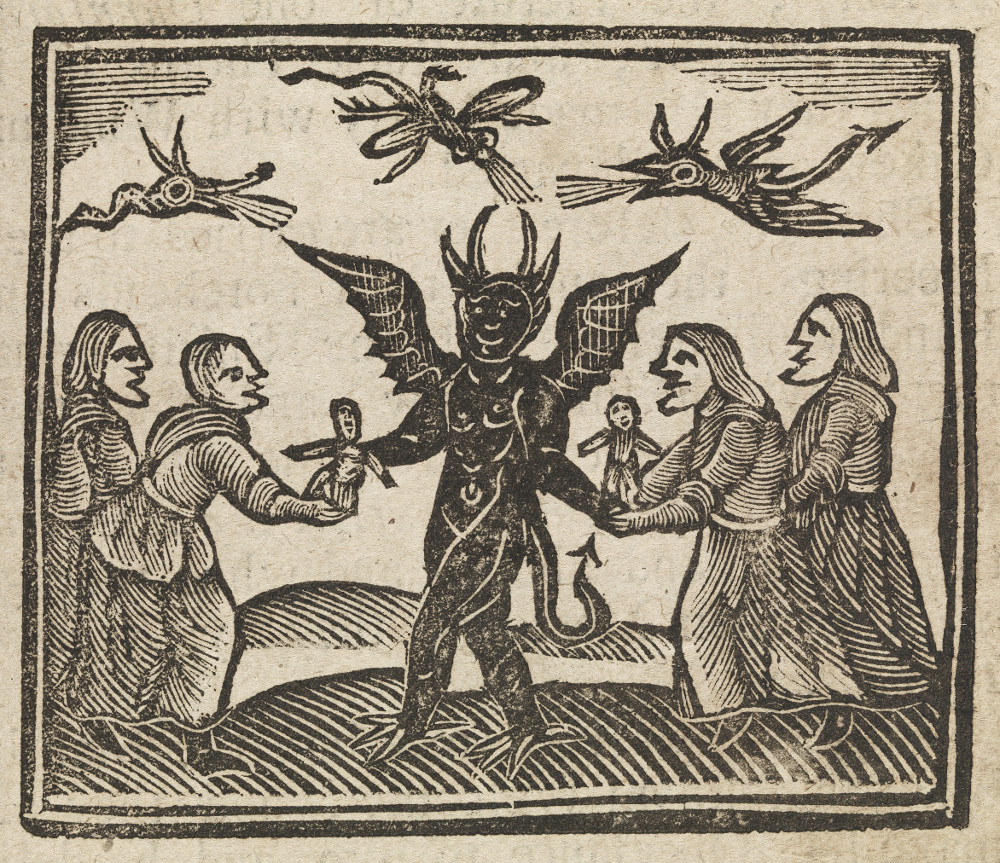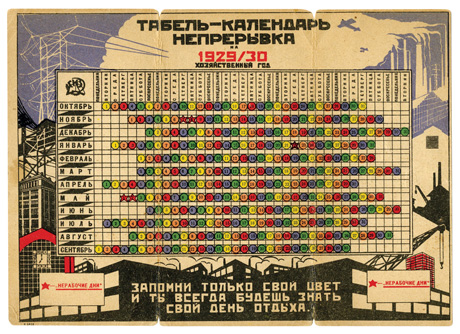via Boing Boing by David Pescovitz

Apparently scientists tend to think of themselves as more rational, objective, and intelligent than non-scientists. Makes sense. And laypeople tend to think that of scientists too. But the scientists surveyed in a new study from Tilburg University in the Netherlands apparently see themselves as much more rational, objective, and intelligent than non-scientists. Are they overconfident or, well, right?
Continue reading
=============================
Woodcuts and Witches
via Arts & Letters Daily: The Public Domain Review

Witches presenting wax dolls to the devil, featured in The History of Witches and Wizards (1720) — Source (Wellcome Library)
Jon Crabb on the witch-craze of Early Modern Europe, and how the concurrent rise of the mass-produced woodcut helped forge the archetype of the broom-riding crone – complete with cauldron and cats – so familiar today.
Continue reading
=============================
What if cosmic inflation is wrong?
via Science Blogs by Ethan
The Big Bang is commonly regarded as the start of it all, but that’s only the birth of what we call our observable Universe. There must have been something compelling to set it up, complete with the initial conditions that our Universe began with. An idea called Cosmic Inflation fits the bill perfectly, providing those conditions and making six explicitly new predictions.
Continue reading and see some stunning images which I cannot copy to here.
=============================
The Soviet Calendar
via 3 Quarks Daily: Tony Wood at Cabinet Magazine

Among the many things to disappear during the world-shaking turmoil of the Russian Revolution – along with czarism, the aristocracy, private banks, landownership – were the first thirteen days of February. On 24 January 1918, Lenin signed a decree ordering the country to switch from the Julian calendar, used by the Orthodox Church, to the Gregorian, bringing revolutionary Russia into line with the rest of Europe. The two systems had been drifting more and more out of alignment since the sixteenth century, so much so that by 1918, making the change meant skipping directly from 31 January to 14 February. From then on, anyone referring to events that took place before this interregnum had to be clear whether the date they were using was Old Style or New Style. The shift also explains why the anniversary of the Great October Revolution was always celebrated in November, which often puzzled visitors to the USSR.
Continue reading
=============================
The Wandering Womb: Female Hysteria through the Ages
by The Chirurgeon's Apprentice

The word “hysteria” conjures up an array of images, none of which probably include a nomadic uterus wandering aimlessly around the female body. Yet that is precisely what medical practitioners in the past believed was the cause behind this mysterious disorder. The very word “hysteria” comes from the Greek word hystera, meaning “womb,” and arises from medical misunderstandings of basic female anatomy.
Today, hysteria is regarded as a physical expression of a mental conflict and can affect anyone regardless of age or gender. Centuries ago, however, it was attributed only to women, and believed to be physiological (not psychological) in nature.
Continue reading
=============================
How the KGB infiltrated classical music
Emil Gilels was hounded to his death by his KGB brother-in-law, who also spied on Rostropovich. There are also now questions over Krzysztof Penderecki’s links to the security services
via Arts & Letters Daily: Norman Lebrecht in The Spectator

Soviet pianist Emil Gilels, 1967 (Photo: Getty)
Spare a thought for Emil Gilels, still revered today by Russians as the foremost pianist of the Soviet era. The first to win a competition abroad (Brussels, 1938), Gilels was also first to be let out after Stalin died to reconnect cultural ties and earn hard dollars for the state coffers, of which he got back a few cents.
Continue reading
=============================
Who knew vintage oil can guitars would sound so great?
via Boing Boing by Andrea James

Hayburner Guitars makes guitars from vintage oil cans, and they look as great as they sound.
Continue reading
I did not know that these instruments sounded so good, nor that they even existed. I had to make do with a tea chest, a broom stick and a bass guitar string. That’s about it except I used to stand to play with my right foot on the top of the chest.

=============================
Design Matters: Why Are So Many Cartoon Characters Yellow?
via The Scholarly Kitchen by David Crotty
As Steve Jobs famously said, most people make the mistake of thinking “design” is about how something looks, rather than how something works. But how a product looks can play a key role in how that product works. Visual design is a complex subject, often one without easy explanations. The video below asks a simple question – why are so many cartoon characters (think Bart Simpson) yellow? While the creation of each individual character can provide a different story, there are some general principles that come into play. Color theory, for example, shows us that on the RGB color wheel, yellow is complementary to blue, and given that blue is a common background color (the sky, the sea), a yellow character will stand out well against it. Color psychology plays a role (yellow is a warm color, and seen as “active”), as do the physical properties of the human eye.
=============================
Why walking through a door makes you forget things
via Boing Boing by Mark Frauenfelder
Why do people forget what they were going to do when they walk into a room? This video explains the "location updating effect," and how you can work it to your advantage.
=============================
Best librarian characters in fantasy fiction
via OUP Blog by Emma French

“The Librarian from Discworld” by Martin Pettitt. CC BY 2.0 via Wikimedia Commons.
Libraries often feel like magical places, the numerous books on every shelf holding the ability to transport their reader to new and wonderful worlds. In the words of Terry Pratchett: “They thought the library was a dangerous place because of all the magical books…but what made it really one of the most dangerous places there could ever be was the simple fact that it was a library.” Libraries in particular seem to have an enchanting power for writers: in many novels, the multiple possibilities that a room of books holds is transformed into literal magic, with libraries becoming doors to infinite other worlds. As the navigators of these boundless realms, fictional librarians are often also given magical powers, as the only ones who can truly understand the library’s mystical ways.
Continue reading
No comments:
Post a Comment